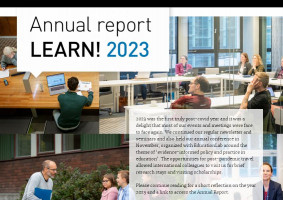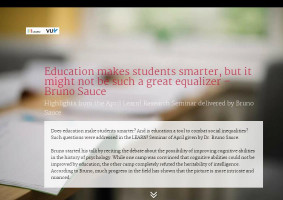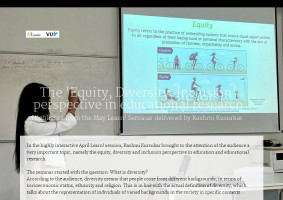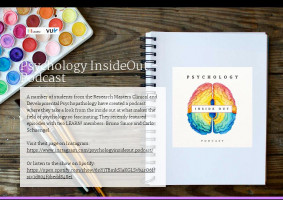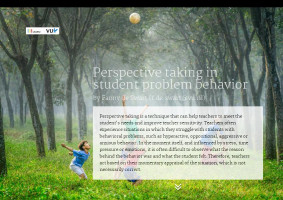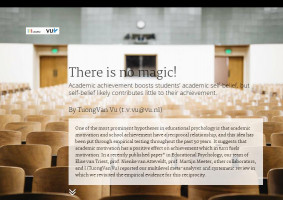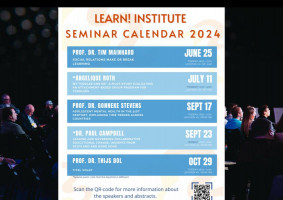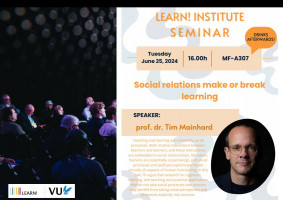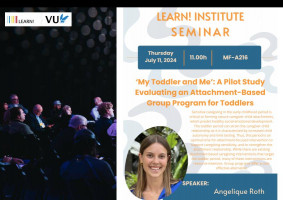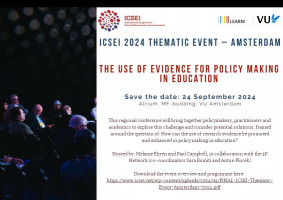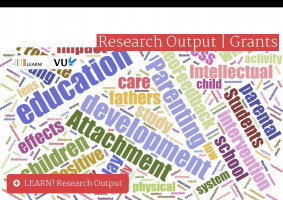Please continue reading to find out about the latest news from our Institute.
Highlights:
- The 2023 Annual Report now published!
- New name of Paula Sterkenburg’s academic collaborative center
- Nienke van Atteveldt part of the team that was awarded a collaborative NRO grant
- Dyslexia and genes: nature and nurture - new podcast and blogspot with Elsje van Bergen
- More years of education may protect from psychiatric problems- study by Perline Demange
- Melanie Ehren joining the UNESCO GEM expert committee
...and more!
NEWS FROM THE CHILD REARING PROGRAM:
- Paula Sterkenburg’s academic collaborative center has a new name: it is now called Affect-us.
“Affect-us ( https://affect-us.nl/ ) is an academic workshop that focuses on developing methods and resources that improve social relationships and attachment in people with visual and/or intellectual disabilities. The hallmark of an academic workplace is making a connection between science and practice. This means that we translate questions from practice into a research project and then implement the results of the research project into practice. In this way we help to improve the well-being of people with visual and/or intellectual disabilities."
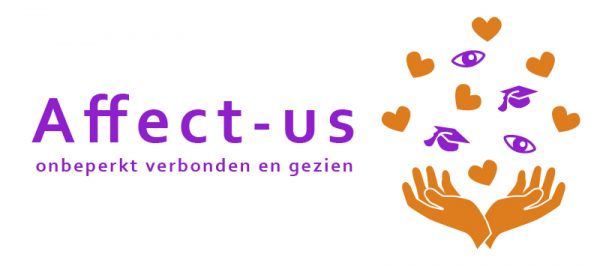
In this video they explain who they are and why they chose the name Affect-us:
https://www.youtube.com/watch?v=10F7drMPbtA
- Annaleena Holopainen will defend her PhD thesis on June 13: https://vu.nl/nl/agenda/2024/promotie-a-holopainen

NEWS FROM THE educational neuroscience PROgRAM:
- LeesKans: Nienke van Atteveldt is part of the team that was awarded a collaborative NRO grant “Gearing reading education towards children's potential: optimizing the interplay between early reading skills and motivation”.
The project is called ‘LeesKans’ and will investigate how we can make reading tests and teaching practices fairer for children from diverse backgrounds, and how these practices relate to children’s mindset and motivation.
- Hinke Endedijk (Leiden University and EMPO), Fanny de Swart (LEARN!) and other authors have published the endreport of their NRO project (in Dutch) titled ‘Teachers taking the perspective of the student with behavior problems’
You can read the report here: https://www.nro.nl/onderzoeksprojecten/perspectief-nemen-bij-gedragsproblemen-0?utm_source=webpower&utm_medium=email&utm_content=txt-project-perspectief-nemen-bij-gedragsproblemen&utm_campaign=NRO-nieuwsbrief%20mei%202024%20%28B%29
And the summary of the report (in English) can be found in the Blogs & Research Highlights section.
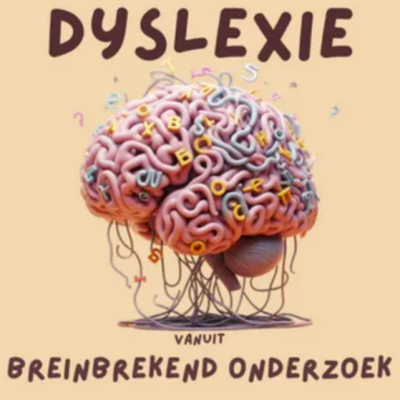
"When it comes to dyslexia, people often talk about a family risk, because it turns out that anyone who has a parent with dyslexia is more likely to develop dyslexia themselves. But what exactly is this? Is dyslexia in the genes or is it upbringing?"
Find out by listening to the new podcast episode on Spotify (in Dutch): https://open.spotify.com/episode/61aVmGwzicYtS6rC43JzWo?si=b431b833fb10443e
OR
Read the blog on EOS Wetenschap (in Dutch):
https://www.eoswetenschap.eu/psyche-brein/dyslexie-en-genen-nature-en-nurture
- More years of education may protect from psychiatric problems - a study by Perline Demange
A new line of research by Perline Demange and Elsje van Bergen suggests that individuals with higher levels of education have a lower risk of psychiatric problems. The study indicates that prolonged education may serve as a protective factor against conditions such as depression, ADHD, alcohol dependence, and anxiety.
Due to its innovative findings, the study received a lot of media attention.
You can read the press release (in English) here:
https://vu.nl/en/news/2024/more-years-of-education-may-protect-from-psychiatric-problems
And an extended version on the scientias website (in Dutch):
https://vu.nl/en/news/2024/more-years-of-education-may-protect-from-psychiatric-problems
_w400_h410_1.jpg)
Perline Demange (https://perlinedemange.github.io/ )
news from the educational governance program:
- Cor van Montfort and Melanie Ehren have recently completed an exchange with the GovTrust centre at the University of Antwerp to discuss the common work around accountability mechanisms / inter-organisational networks and questions of trust.
- Melanie Ehren has joined the UNESCO GEM expert committee to advice on system leadership.
NEWS FROM THE MOTIVATION FOR LIFELONG LEARNING PROGRAM:
- Jan Willem Grijpma will defend his thesis on June 25, which is titled 'From small spark to great fire: Optimizing medical students’ engagement in small-group active learning'.
More on his thesis:
https://vu.nl/en/events/2024/phd-defence-j-w-grijpma



